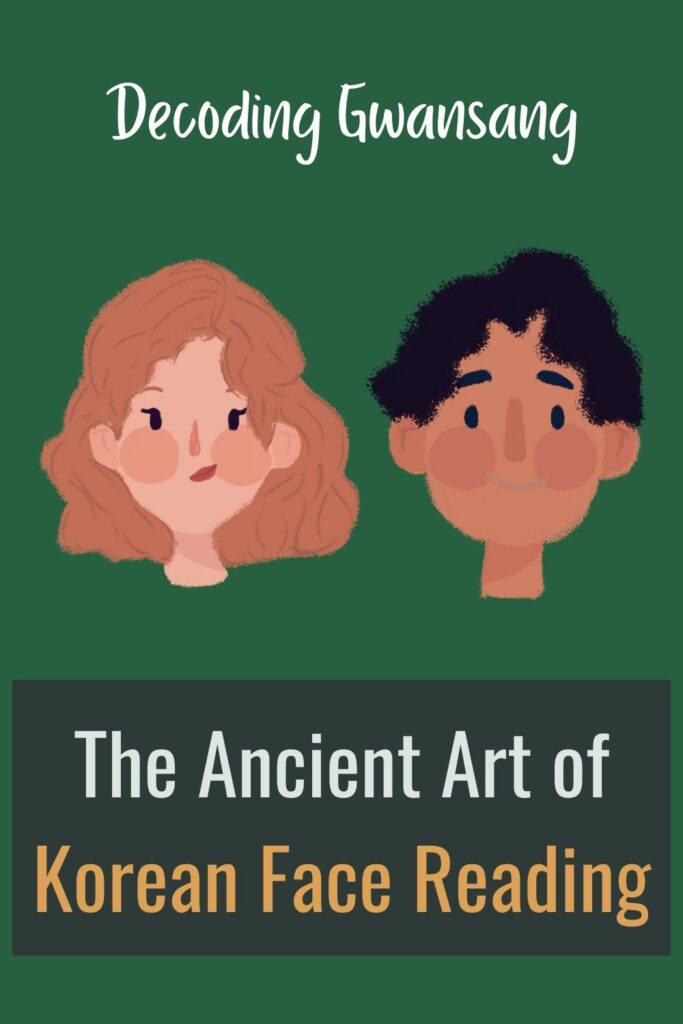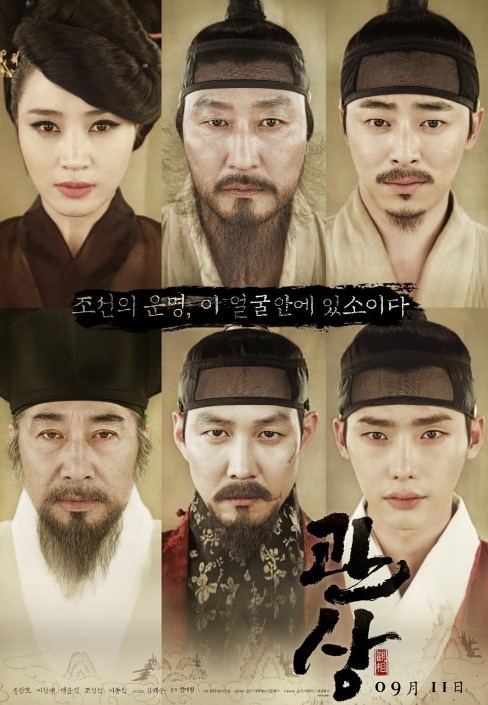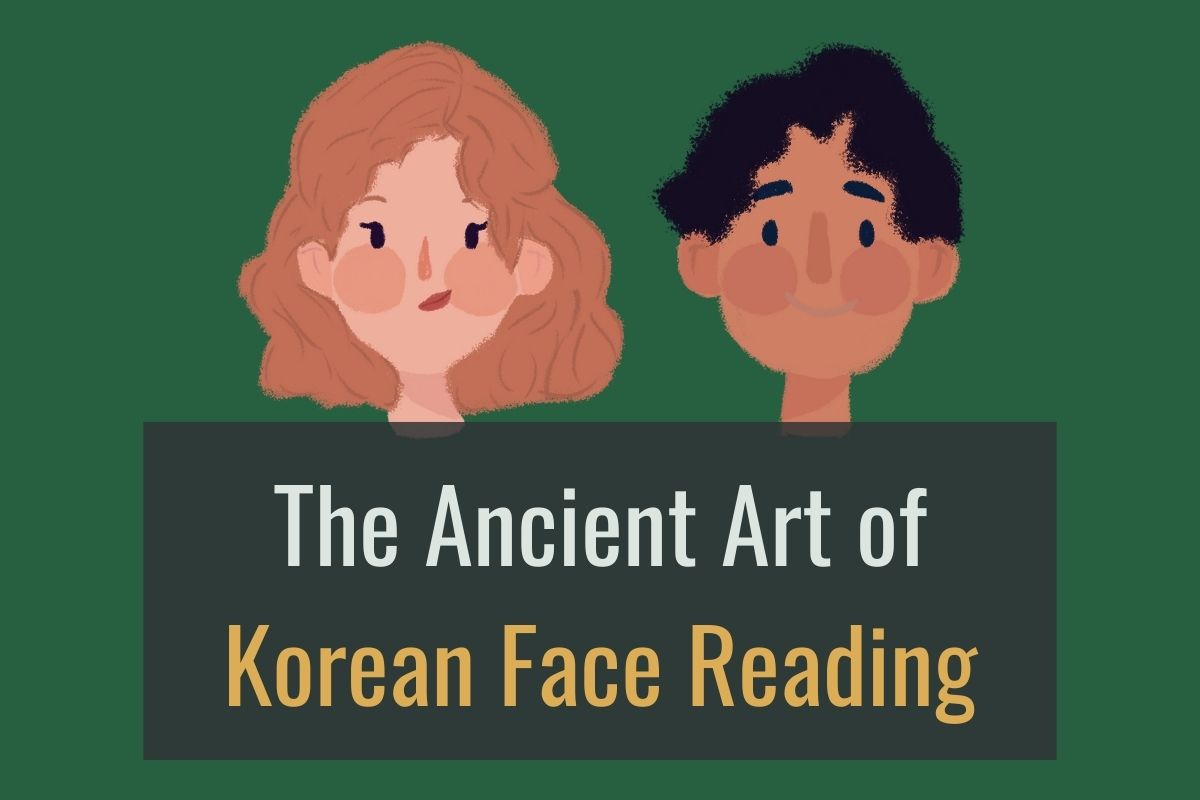Today, we’re delving into the captivating realm of Gwansang, an ancient practice deeply woven into Korean culture.
Strap in as we explore the fascinating world of Korean face reading!

Quick Summary
- Gwansang or physiognomy is the Korean art of face reading.
- Gwansang is not about predicting the future with crystal ball precision. Koreans try it for fun.
- In modern Korea, Gwansang is experiencing a resurgence, blending ancient wisdom with contemporary insights.
What is Gwansang?
Gwansang or physiognomy is the Korean art of face reading, where every contour, line, and feature holds a story waiting to be unveiled. It’s somewhat related to saju, or Korean fortune telling.
The belief system dates back to approximately the seventh century.
It’s a practice rooted in the belief that one’s face is a “map” that can reveal insights into personality, destiny, and even health.
Imagine your face as a canvas of insight or map, and Gwansang as the compass guiding you through the intricate terrain of your life.
Similar to palm reading, Gwangsang is a fun and cultural pseudoscience that makes for a good party trick.
Is it worth watching the Gwansang movie “The Face Reader”?

If you’re a fan of cinematic adventures, “The Face Reader” (2013) is worth a watch.
This South Korean film, directed by Han Jae-rim, takes audiences on a mesmerizing journey into the 15th-century Joseon Dynasty.
The protagonist, played by the talented Song Kang-ho, possesses the rare ability to read faces, turning the ancient practice of Gwansang into a thrilling tale of power, intrigue, and destiny.
How do I read the lines?
In the world of Gwansang, facial features are akin to a language waiting to be deciphered.
The human form, particularly the facial features, mirrors elements of the natural world such as mountains, trees, rocks, rivers, and animals.
The symbolism extends further, attributing significance to specific human features. For instance, two eyes symbolize the sun and the moon, and various facial elements like the nose and forehead are associated with mountains, while hair is seen as representing plants and trees.
The lines on your forehead may hold clues about your career path, while the shape of your eyes could reveal your emotional nature.
It’s a subtle art, but one that practitioners believe can unlock the secrets of one’s past, present, and future.
What should I take away from Gwansang?
Gwansang is not about predicting the future with crystal ball precision. It’s best not to take it too seriously. It’s about understanding yourself on a deeper level.
Whether you’re curious about your relationships, career, or health, Gwansang offers a personalized exploration of your unique journey.
Sort of like flipping a coin when you can’t make up your mind and realizing what you want while the coin is in midair.
What do Koreans think of Gwansang?
In modern Korea, Gwansang is experiencing a resurgence, blending ancient wisdom with contemporary insights.
Many are turning to face reading not just for fortune-telling but as a tool for self-discovery and personal growth. Some take things a bit further by getting cosmetic surgery based on the consultation of Gwansang readers.
Koreans jokingly say that “Gwansang is science” as it’s based on our accumulated data collected throughout our lives. This expression is frequently used to comment on mugshots in the news.
Although we shouldn’t judge a book by its cover, our face can often tell a story without a word.
It’s a beautiful fusion of tradition and modern mindfulness.
How to unlock your destiny by embracing Gwansang
As we wrap up our exploration of Gwansang, consider this ancient practice as a unique way to explore the tapestry of your life.
Individuals possess unique minds, thoughts, and distinctive features such as facial expressions, voices, and habits. These characteristics, along with environmental factors, contribute to the formation of one’s facial appearance, influenced by both mental disposition and genetic traits. Subsequently, thoughts and behavior play a complementary role in shaping an individual’s destiny.
Transforming one’s “gwansang” is certainly achievable through a positive attitude and mindset. To quote a famous fashion designer, “Nature gives you the face you have at twenty; it is up to you to merit the face you have at fifty.”
Whether you’re captivated by the art of face reading or enticed by the cinematic allure of “The Face Reader,” Gwansang invites you to unlock the mysteries that lie beneath the surface.





